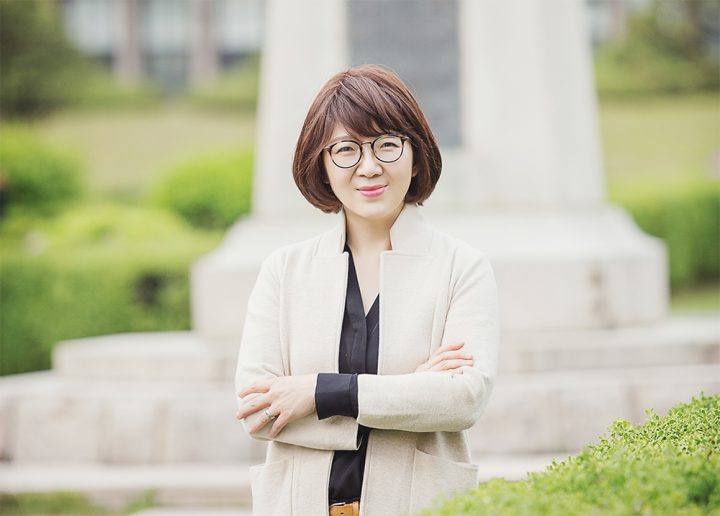Professor Hyoun Kim from Yonsei University Visits INVEST
Professor Hyoun Kim has a multitude of research expertise areas in the field of Child and Family Studies. In Turku, she will discuss collaboration opportunities with the Research Centre for Child Psychiatry and deliver lectures on current topics.
Dr. Hyoun Kim works as a professor in the department of Child and Family Studies at Yonsei University in Seoul, South Korea. She also has a 20-year history of working at the highly esteemed Oregon Social Learning Center (OSLC) in the USA.
Professor Kim visits Turku from January the 23rd to February the 17th, invited by Professor Andre Sourander of the Research Centre for Child Psychiatry. The main objects of Professor Kim’s visit are discussing ongoing and future collaboration opportunities and delivering lectures for students and staff at the University of Turku.
– Hyoun Kim is an international top-tier researcher, who has collaborated with the greatest names of our discipline. She has also been involved in developing evidence-based treatment programs for children, adolescents, and families with children. In order to develop our own interventioins, we should collaborate constantly and share information with our international colleagues, Sourander says.
– I am very grateful for Dr. Sourander’s invitation and am looking forward to meeting him and his colleagues, students, and staff and sharing our research interests and educational goals for future endeavors, says Kim.
Three Public Lectures on Social Learning Theory and Family Interventions
The lectures Professor Kim gives in Turku are also open to the public.
The first lecture will be given in Visitor Centre Joki, in the lecture hall Ministeri on Tuesday, January the 31st from 12.30 to 14.30. The subject of the lecture is Dr. Gerald Pattersson’s Social Learning Theory, which is the base for many treatment programs that utilize family coaching.
On her second lecture, Professor Kim goes over some of the evidence-based practices developed based on Social Learning Theory. She will introduce components of the programs and their positive effects. The lecture will be given in Visitor Centre Joki, in the lecture hall Ministeri on Tuesday, February the 7th from 12 to 14.
The last lecture will also be given in Visitor Centre Joki, in the lecture hall Ministeri on Tuesday, February the 14th from 12 to 14. The subject of the lecture is the Kids In Transition to School (KITS) intervention program developed in the Oregon Social Learning Center. The program has been implemented throughout the state of Oregon. Components of the program and its positive effects will be presented.
Exploring the Possibilities of Technology in Child and Family Studies
Professor Kim has a wide array of research interests in the field of Child and Family Studies. Her areas of expertise include, for instance, the relationship between early adverse experiences and neural systems, and understanding developmental trajectories of problem behaviors in youth with at-risk backgrounds. She is also interested in researching the effects of technology on developmental trajectories and adjustment and the possibilities of collecting multimethod and multilevel data via smart devices for research purposes.
At the moment, she is working on three longitudinal research projects. The first one is a 10-year study to examine generation Alpha’s, those who were born in 2010 or after, daily digital activity and adjustment. The second study concerns students’ academic, physical, and mental adjustment after the COVID-19 pandemic. Lastly, she is working on a study that seeks to develop AI-based solutions for safe early childhood care settings.
Professor Kim hopes for further collaboration with the University of Turku.
– I would be interested in developing an ongoing collaboration to start a parallel study on Generation Alpha I am conducting in Korea. I would also like to see whether we can develop a course at the graduate level that students from the University of Turku and Yonsei University can take together and develop international research networks, Kim says.
The Inequalities, Interventions, and New Welfare State (INVEST) is an Academy of Finland Flagship and a Joint Research Centre of the University of Turku and Finnish Institute of Health and Welfare. It aims at increasing wellbeing of Finnish society during childhood, youth and early adulthood and preventing psychosocial risks compromising such development through innovative interventions. INVEST aims at providing a new model for the welfare states that is more equal, better targeted to problem groups, more anticipatory as well as economically and socially sustainable.

